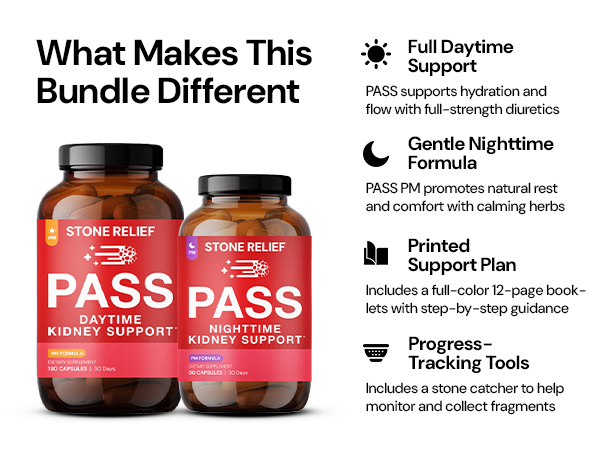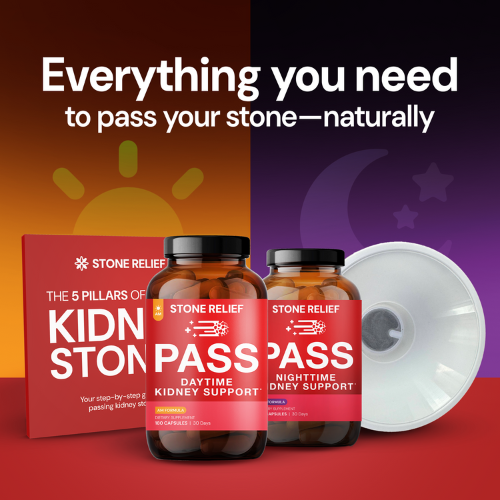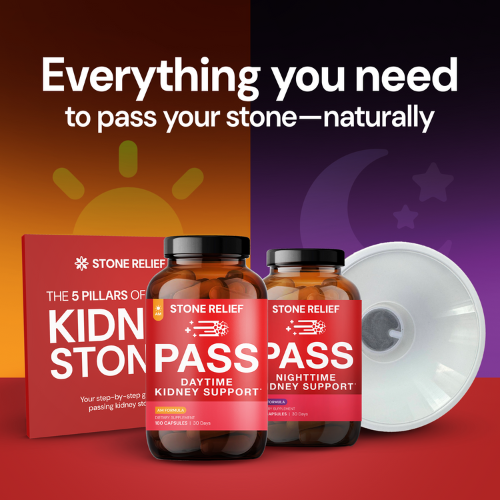Dietary Citrates for Kidney Stones: How They Help
Many people know drinking more water helps prevent kidney stones, but few realize the powerful role dietary citrates can play. In this blog, I break down how dietary citrates for kidney stones work, which stones they impact the most, and how you can use them to protect your kidneys naturally.
Key Takeaways
-
Dietary citrates can significantly lower kidney stone risk.
-
Lemons and limes offer the most bioavailable source of citric acid.
-
Citric acid binds to stone-forming materials, reducing formation.
-
Calcium oxalate and uric acid stones benefit the most from citrate therapy.
When it comes to kidney stone prevention, most people are told the same thing: drink more water. While that's solid advice, there's a whole other layer to prevention that barely gets talked about — dietary citrates for kidney stones.
I used to think that staying hydrated was the only thing I could do. But once I learned how powerful citrates can be in stopping stones from forming, everything changed.
Let's dive into what dietary citrates are, how they help, and how you can use them daily to protect yourself.
Understanding Kidney Stones and Their Causes
Before we dig into citrates, it's important to know the basics of kidney stones. Here are the top five types:
Calcium Oxalate Stones – These are the most common and happen when calcium binds with oxalic acid.
Calcium Phosphate Stones – Form when alkaline urine combines calcium and phosphoric acid.
Uric Acid Stones – Develop from acidic urine and high levels of uric acid.
Struvite Stones – Caused by bacterial infections.
Cystine Stones – A rare, hereditary condition where stones form very quickly.
Knowing the type of stone you have helps determine how effective dietary citrates will be for you.
🛒 Check Price & Purchase Stone Relief Pass AM/PM Bundle on Amazon
What Is Citric Acid?
Many people associate citric acid with fruits and sodas, but it's important to distinguish it from ascorbic acid (vitamin C). Citric acid is an organic acid found naturally in many fruits and vegetables, with the highest concentrations in lemons and limes.
You can also find citric acid in synthetic forms like calcium citrate, potassium citrate, and magnesium citratesupplements. However, the body absorbs it best when it comes from natural food sources.
If you're aiming for the maximum impact on your kidney stone risk, fresh lemons and limes are your best bet.
How Citric Acid and Citrates Help with Kidney Stones
So how exactly do dietary citrates for kidney stones work?
When citric acid enters the body, it makes urine less favorable for stone formation. More citric acid equals less chance of stones.
Here’s how it works for specific stone types:
Calcium Oxalate Stones – Citric acid binds to free calcium, preventing it from combining with oxalate.
Uric Acid Stones – It helps alkalize urine, which reduces uric acid crystal formation.
If you form calcium oxalate or uric acid stones like I did, boosting your citrate intake could be a game-changer.
People with calcium phosphate, struvite, or cystine stones can still see some benefit, but it’s less impactful compared to calcium oxalate and uric acid stones.
🛒 Check Price & Purchase Stone Relief Pass AM/PM Bundle on Amazon
Best Way to Get Dietary Citrates Naturally
The most effective way to add dietary citrates for kidney stones is through fresh lemon and lime juice.
One to two lemons or limes per day give you about 1200 milligrams of citrate — roughly the equivalent of 10-12 citrate supplement tablets.
Here’s what I recommend:
Freshly squeeze your lemons and limes. Pasteurized juices lose some of their effectiveness.
Prepare in bulk if needed. Juice your lemons and store it for a day or two in the fridge.
Add it to your water, tea, or even smoothies to make it easy to consume daily.
It’s a little extra work, but the payoff for your kidneys is huge.
What Does the Research Say About Dietary Citrates for Kidney Stones?
If you like hard numbers, the research is very promising.
In studies covering nearly 1000 participants:
-
Only 14.5% of people who consumed citric acid formed new kidney stones.
-
52% of people who didn't take citric acid formed new stones.
That means 85% of people who added citrates prevented new stones.
Seeing those numbers was all the proof I needed to make citrates part of my daily routine.
🛒 Check Price & Purchase Stone Relief Pass AM/PM Bundle on Amazon
Final Thoughts on Adding Dietary Citrates for Kidney Stones
If you’re serious about stopping kidney stones like I was, adding dietary citrates is one of the easiest and most effective strategies you can use.
It’s natural.
It’s simple.
And it works.
I make it a daily habit to add fresh lemon or lime juice to my water, and it’s helped me stay stone-free for years.
If you haven’t tried using dietary citrates for kidney stones yet, I highly recommend starting today. Your kidneys will thank you.








